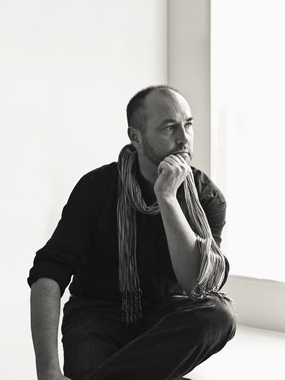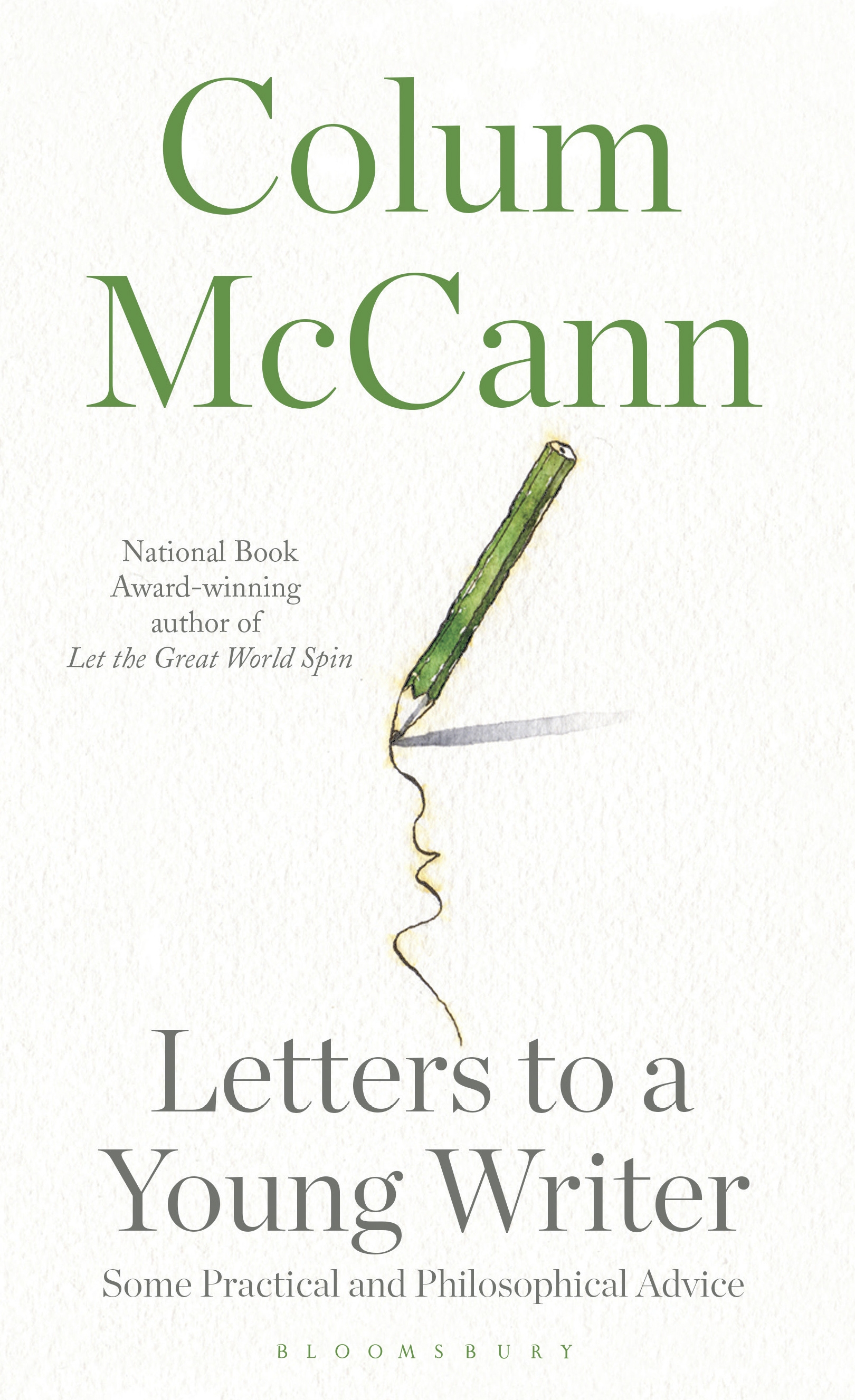Writing advice from one of modern literature's most acclaimed authors, Colum McCann, taken from Letters To A Young Writer: Some Practical and Philosophical Advice.

There Are No Rules
Or if there are any rules, they are only there to be broken. Embrace these contradictions. You must be prepared to hold two or more opposing ideas in the palms of your hands at the exact same time.
To hell with grammar, but only if you know the grammar first. To hell with formality, but only if you have learned what it means to be formal. To hell with plot, but you better at some stage make something happen. To hell with structure, but only if you have thought it through so thoroughly that you can safely walk through your work with your eyes closed.
The great ones break the rules on purpose. They do it in order to remake the language. They say it like nobody has ever said it before. And then they unsay it, and they keep unsaying it, breaking their own rules over and over again. So be adventurous in breaking—or maybe even making—the rules.
Your First Line
A first line should open up your rib cage. It should reach in and twist your heart backward. It should suggest that the world will never be the same again. The opening salvo should be active. It should plunge your reader into something urgent, interesting, informative. It should move your story, your poem, your play, forward. It should whisper in your reader’s ear that everything is about to change.
So much of what then follows is based on the tone of the opening cue. Assure us that the world is not static. Give us something concrete to hang on to. Let us know that we’re going somewhere. But take it easy too. Don’t stuff the world into your first page. Achieve a balance. Let the story unfold. Think of it as a doorway. Once you get your readers over the threshold, you can show them around the rest of the house. At the same time, don’t panic if you don’t get it right first time around. Often the opening line won’t be found until you’re halfway through your first draft. You hit page 157 and you suddenly realise, Ah, that’s where I should have begun. So you go back and begin again.
Open elegantly. Open fiercely. Open delicately. Open with surprise. Open with everything at stake. This, of course, is a bit like being told to walk a tightrope. Go ahead, then, walk the tightrope! Relax yourself into the tension of the wire. The first line, like the first step, is only the first of many, yet it sets the shape of what is to come. Try walking a foot off the ground, then two feet, then three. Eventually you might go a quarter mile in the sky. Then again, you might stumble and fall. No matter. It is, after all, a work of the imagination. You won’t die trying. At least not yet.
Your Last Line
Gogol said that the last line of every story was, “And nothing would ever be the same again.” Nothing in life ever really begins in one single place, and nothing ever truly ends. But stories have at least to pretend to finish. Don’t tie it up too neatly. Don’t try too much. Often the story can end several paragraphs before, so find the place to use your red pencil. Print out several versions of the last sentence and sit with them. Go to your park bench again. Discover silence. Read each version over and over. Go with the one that you feel to be true and a little bit mysterious. Don’t tack on the story’s meaning. Don’t moralise at the end. Don’t preach that final hallelujah. Have faith that your reader has already gone with you on a long journey. They know where they have been. They know what they have learned. They know already that life is dark. You don’t have to flood it with last-minute light.
You want the reader to remember. You want her to be changed. Or better still, to want to change.
Try, if possible, to finish in the concrete, with an action, a movement, to carry the reader forward. Never forget that a story begins long before you start it and ends long after you end it. Allow your reader to walk out from your last line and into her own imagination. Find some last-line grace. This is the true gift of writing. It is not yours anymore. It belongs in the elsewhere. It is the place you have created. Shake up their perception of the world. Combine worlds. Combine words.
Your last line is the first line for everybody else.
If you’re done, you’ve only just begun
Just because you’ve typed the last sentence—remember, bloodstains are far more visible than tears—doesn’t mean that you’ve actually finished a book. A book might take a few years to write, but even after it’s written it still has to be finished. Patience and tenacity, please. Patience, I said. Patience. Writing is about seventy-five percent of the job. There’s the editing. And then there’s the editing. Oh, and then there’s the editing. And, after that, there’s the editing again. After that there’s the copyediting. Then there’s the publicity meeting.
And then there’s the marketing meeting. Then there’s some more editing. Then there’s the request for blurbs. Then there’s a proof copy. Then there’s the final editing. A tweak here, a tweak there. Then there’s the wait. The pause. The hold. The catch of breath. The wish that you had edited more.
Then there are the op-eds that you hope to place at the very least in The New York Times. Then there’s the wailing and gnashing of teeth when the op-ed appears in an online journal read by only six people. But, hey, that’s six more readers than before. Then you wait some more. You lie awake at night. Then there’s the visit to the seventh circle of hell: the first reviews. Don’t despair too much. Don’t rejoice too much either. You are only halfway through. Then, a month or so before publication, the first six copies come in the post. Take one out of the box. Cherish it. Give it a drink. Give yourself a drink too. Dance around your apartment. Knock over the shelves. Tuck the book away as the first copy you ever touched. Give out other copies to your loved ones: your partner, your mother, your friends who supported you all along. Buy at least twenty more first editions. Yes, you have to buy them, believe it or not. There are no endless free books. But you should get them half-price. Or your editor might sling a box of them your way.
Do not give all your first editions away. Repeat, do not give them all away. Tuck away five or six of them for you, your kids, your grandkids, and others you love. Hopefully, there will be many more editions in the future. Trust me, you don’t want to end up paying for a first edition of your first ever book. Hopefully, it will be good enough that readers will want it forever. So it sits on your shelf. And then you get ready for the onslaught. You pray that at least some of it comes.
You have your first reading. You do a small book tour. You find some kindred spirits. A lot of the time you go out to silence. That’s the toughest thing of all. This thing that you have worked on for years, nobody seems to give a damn. But so what? Good writers have stamina. Good writers have perseverance. Good writers have desire. You get back up and you begin again. Even better, you have begun your second book long before the first comes out. You have kindled that fire, and the disappointment of the ash-heaped first doesn’t even matter. And if you find—as you should—that the second book is harder than the first, then you are the writer that you always wanted to become.
Colum McCann, originally from Dublin, Ireland, is the author of six novels and two collections of stories. His most recent novel, the New York Times bestseller Let The Great World Spin, won the National Book Award, the International IMPAC Dublin Literary Award and several other major international awards. His fiction has been published in thirty-five languages. He lives in New York.
Letters To A Young Writer was published in 2017. Browse titles from Colum McCann on Bloomsbury.com

Comments